Demare carries French hopes at Paris-Roubaix
1997 winner Guesdon on Groupama-FDJ rider's prospects of bridging 21-year gap
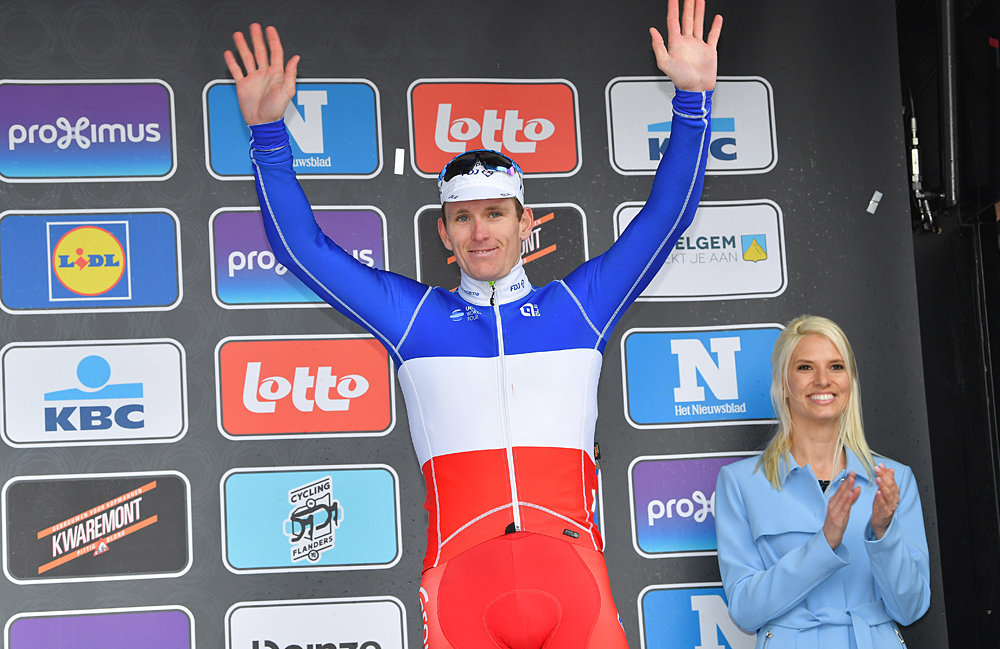
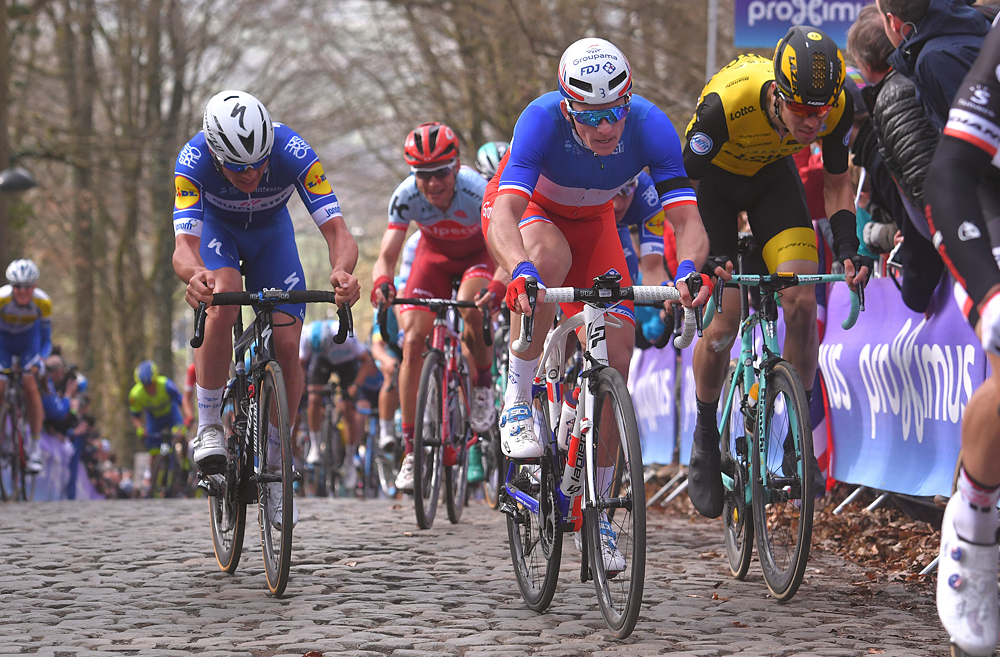
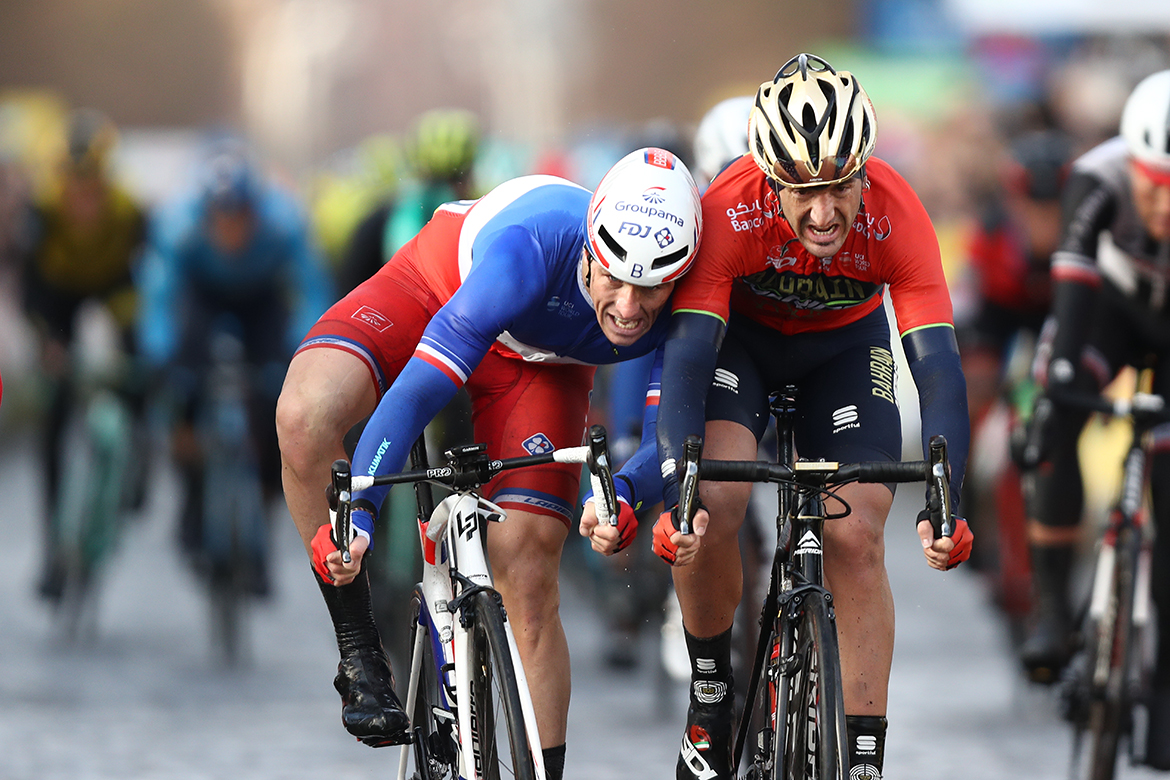
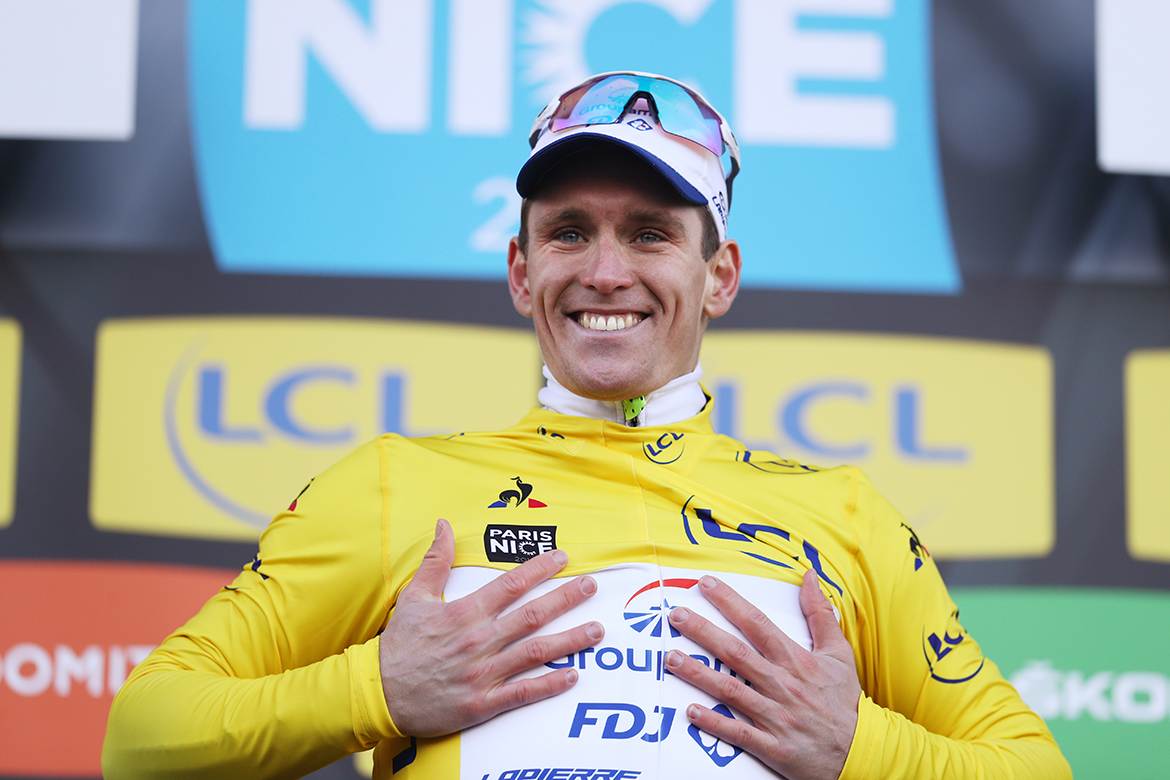
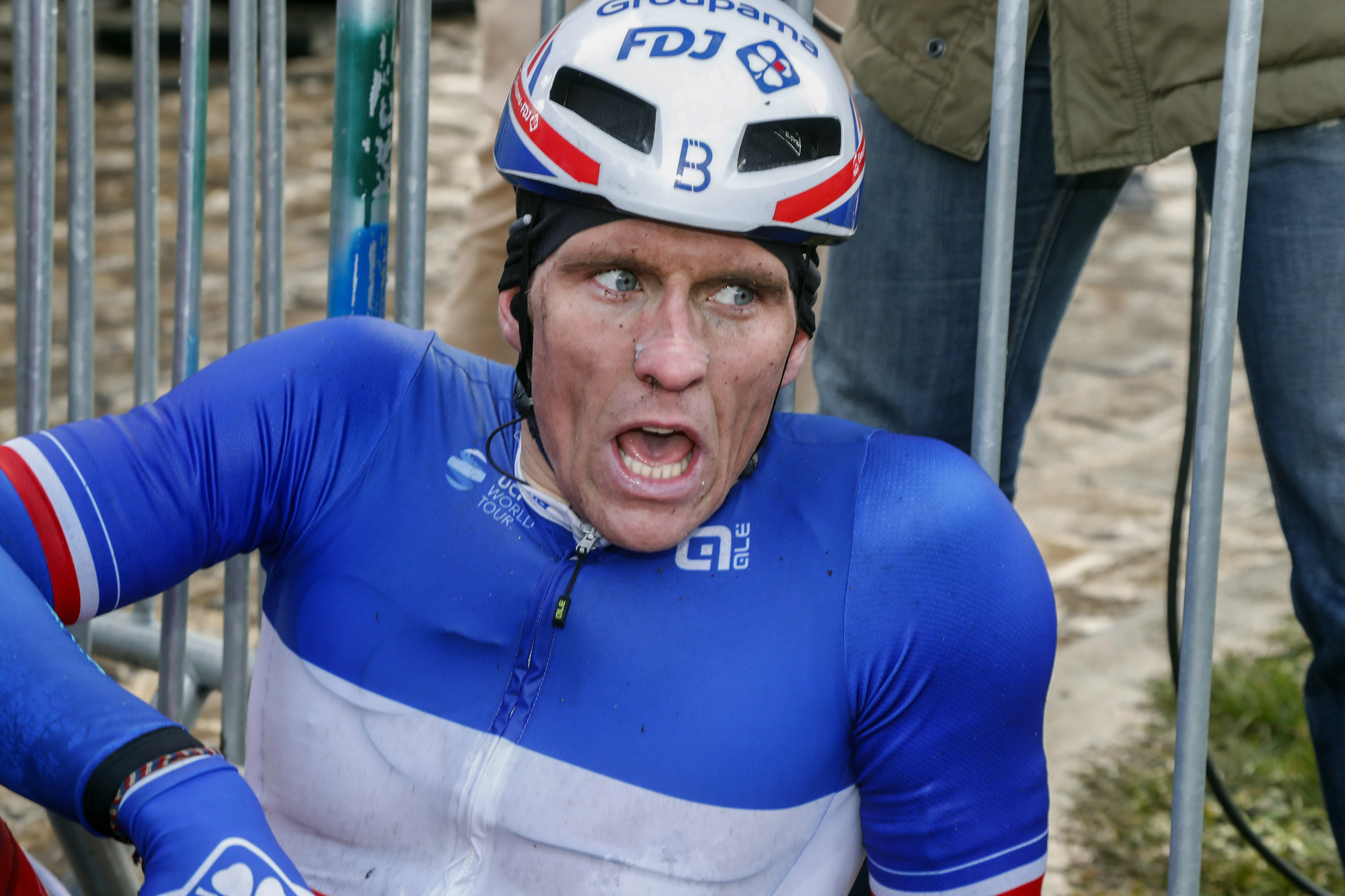
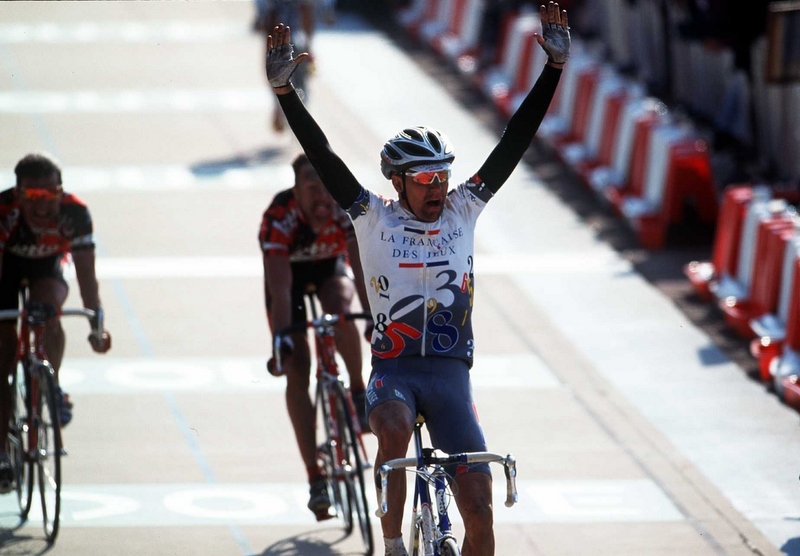
After completing his reconnaissance of the Paris-Roubaix cobbles on Thursday, Arnaud Démare (Groupama-FDJ) was at least able to see the funny side of his exclusion from Scheldeprijs the previous afternoon for ignoring a closing level crossing, quipping to reporters that "all of the lights are green," for the countdown to Sunday.
The long wait for a French winner of Paris-Roubaix is not quite as long as the gap since the last home Tour de France champion – 21 years as opposed to 33 – but while Romain Bardet and Thibaut Pinot have shared the tag of being the men most likely to emulate Bernard Hinault, Démare is currently France's only realistic contender for victory in the Hell of the North.
Démare's entourage includes the last Frenchman to triumph in the Roubaix velodrome, Frédéric Guesdon. The Groupama-FDJ directeur sportif believes that Démare has drawn considerable confidence from his sixth place a year ago after several years of ill fortune in the race he covets above all others.
"He hadn't got results in Paris-Roubaix before last year other than as a junior and amateur, although that gives you confidence too," Guesdon told Cyclingnews. He would know – Guesdon finished second in the amateur Paris-Roubaix in 1994, three years before his triumph as a professional.
"Finishing sixth last year was a big moment for Arnaud," Guesdon continued. "It gave him a lot of motivation for this season. He's coming in with a lot of confidence this year because he went well last time around and his physical condition is very good at the moment."
With an eye to the Tour de France as much as to the Classics, Démare has raced more sparingly in the early weeks of the season than he did last year, skipping Etoile de Bessèges and starting his campaign at the Volta ao Algarve.
He has enjoyed a solid run of form to this point. A stage win at Paris-Nice laid down an early marker, while he placed third at Milan-San Remo for his best Classic result since his victory in La Classicissima in 2016. A week later, Démare was third again at Gent-Wevelgem and he was prominent at the Tour of Flanders until he cracked on the final haul up the Oude Kwaremont.
Get The Leadout Newsletter
The latest race content, interviews, features, reviews and expert buying guides, direct to your inbox!
"I've only done one week of racing less," Démare told Cyclingnews earlier this week. "In the end, that's not a huge difference, but I think I'm feeling the benefit of it."
Last weekend's 15th place was his best showing to date at the Tour of Flanders, which, in its current iteration, was always likely to remain beyond the reach of Démare. Certainly, neither he nor Groupama-FDJ management evinced too much disappointment at how his race unfolded, accepting, as L'Équipe put in on Monday morning, that the Kwaremont was simply a muur too far.
"I felt very good, but the others were simply very strong. The Kwaremont is hard and I got dropped there," Démare said matter-of-factly.
"He's been getting closer every year, but the Tour of Flanders is the Classic that suits him the least," Guesdon suggested. "Still, he fought well all the way through, and it was only the last time up the Kwaremont that he was lacking that little bit. We're always looking to make up that little deficit every year."
Better suited to Paris-Roubaix
Paris-Roubaix, on the other hand, is a race that seems rather better suited to Démare's characteristics, and the Beauvais native's love affair with the event began with his second place as a junior in 2009. He proceeded to take fourth as an under 23 rider two years later and drew much praise for his 12th place finish as a 22-year-old in 2014.
Ill fortune and poor form blighted him in the editions that followed but after winning the sprint for sixth a year ago, just 12 seconds behind the winning move of Greg Van Avermaet (BMC), Démare's belief in his ability to compete on the pavé was restored.
"The effort at Paris-Roubaix suits him better than the short, steep climbs at the Tour of Flanders," Guesdon said. "It's a longer effort on the flat, and it's more about producing power, which is easier for him than using the smaller gear on the climbs in Flanders."
Démare's rapid finish affords him the relative luxury of not having to drop his rivals ahead of the Roubaix velodrome, and a rider who can win on the Via Roma after nearly 300 kilometres can be justifiably confident in his finishing speed on the legendary track finish.
"With Arnaud, we have a little advantage, in that his sprint means he can be confident if he reaches the velodrome in a small group," Guesdon said. "But at this race, there's never an obvious ideal scenario beforehand, because the race changes a lot as the kilometres go by and so much can happen. You just have to be vigilant throughout and stay at the front."
The one certainty in this Paris-Roubaix seems to be the collective might of Quick-Step Floors, who have dominated proceedings on the cobbles this Spring and boast four potential winners in the shape of Tour of Flanders winner Niki Terpstra, Philippe Gilbert, Yves Lampaert and Zdenek Stybar. They policed affairs at E3 Harelbeke, Gent-Wevelgem and the Tour of Flanders, though it might be rather more difficult to put order on a race as unruly as Paris-Roubaix.
"Quick-Step are very, very strong, but Paris-Roubaix is a different race, where there are more variables like punctures and crashes," Démare argued. "Luck can play a big part, and maybe it can play out in our favour on Sunday."
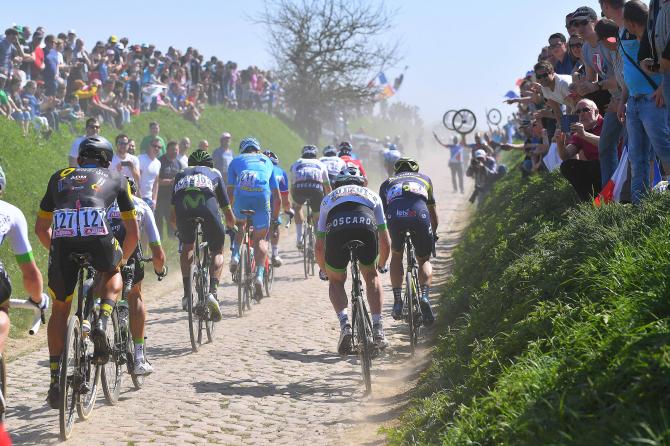
Remembering 1997
21 years ago Patrick Lefevere's Mapei squad – the forerunner to Quick-Step – seemed to hold most of the aces on the eve of Paris-Roubaix, but a brace of punctures for their leader Johan Museeuw altered the complexion of the race. The second puncture saw the then world champion drop out of what seemed the winning move and fall in with Guesdon's chasing group.
Museeuw's efforts then helped to peg back Andrei Tchmil and Frédéric Moncassin at the gates of the velodrome and the rest is history. Guesdon wound up his large gear on the outside and sprang one of the greatest upsets in Paris-Roubaix history, beating Jo Planckaert and Museeuw.
"Sometimes there's an opening," Guesdon said, "and you have to seize that opportunity when it arrives."

Barry Ryan was Head of Features at Cyclingnews. He has covered professional cycling since 2010, reporting from the Tour de France, Giro d’Italia and events from Argentina to Japan. His writing has appeared in The Independent, Procycling and Cycling Plus. He is the author of The Ascent: Sean Kelly, Stephen Roche and the Rise of Irish Cycling’s Golden Generation, published by Gill Books.